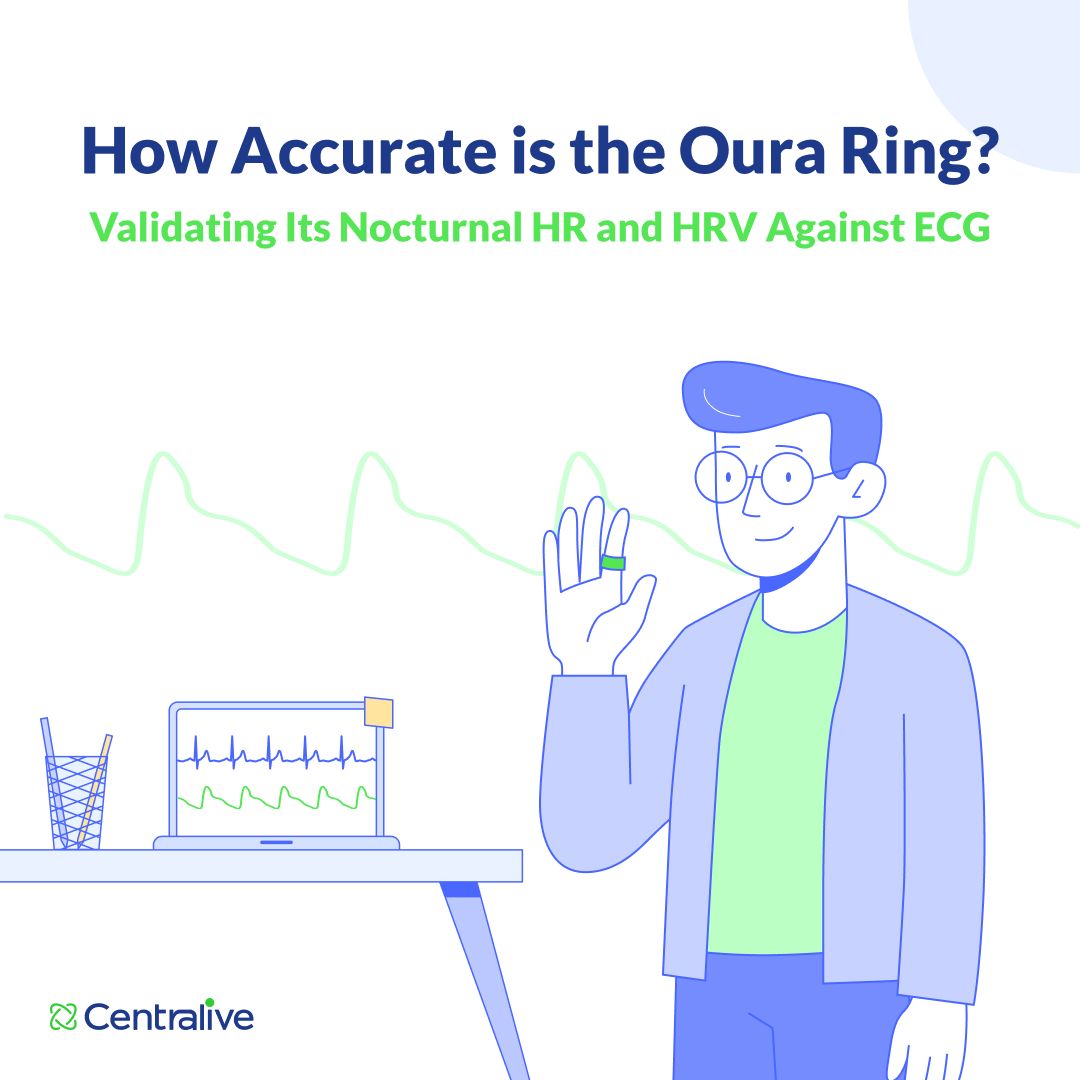How Accurate is the Oura Ring? Validating Its Nocturnal HR and HRV Against ECG

As wearable technology advances, understanding its accuracy becomes critical for health applications. A recent study published in the Journal of Medical Internet Research evaluates the ŌURA Ring, a photoplethysmography-based smart ring, against a medical-grade chest ECG for measuring nocturnal heart rate (HR) and heart rate variability (HRV).
Key Findings:
High Accuracy:
HR and RMSSD (root mean square of successive differences) showed strong accuracy in both 5-minute and average-per-night tests.
Parameters like AVNN and pNN50 demonstrated reliable accuracy in average-per-night assessments.
Moderate Accuracy:
Metrics such as SDNN (standard deviation of normal beats) and HF (high frequency) showed moderate correlations in short-term tests but improved in overnight averages.
Low Accuracy:
The LF (low frequency) and LF:HF ratio had higher error rates across all tests, highlighting areas for improvement.
The study underscores the potential of wearables like the Oura Ring for remote health monitoring, especially for tracking HR and HRV trends. While some metrics align closely with medical-grade devices, others require refinement for enhanced clinical reliability.
Implications:
The Oura Ring’s strengths make it a valuable tool for wellness monitoring, with promising applications in sleep and stress analysis. However, for clinical-grade precision, further innovation in motion artifact reduction and data processing is essential.
Curious about leveraging wearable tech for your health or research? Let’s discuss!
Read the full study:
https://lnkd.in/deMnrjv6
Authors:
Rui Cao, Iman Azimi, Fatemeh Sarhaddi, Hannakaisa Niela-Vilen, Anna Axelin, Pasi Liljeberg, Amir M. Rahmani
